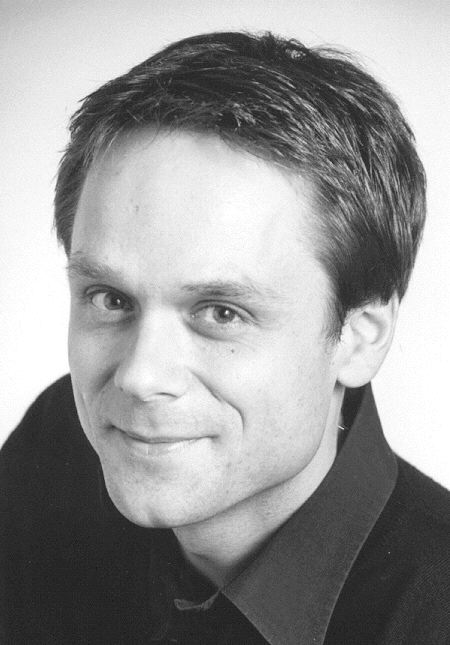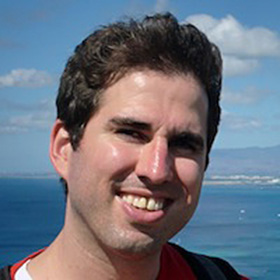Plenary Talks
ITW 2017 will include four plenary talks.

Caching - Strategies, Models, Bounds
Michael C. Gastpar
abstract
Under the caching paradigm, portions of data are delivered to users before it is known what part of the data the users will request. Coding opportunities arise along at least three axes : file popularity, content similarity, and multi-user advantages. File popularity can be exploited with classical techniques, and hinges on prior statistical knowledge about the users. File similarity can be exploited with strategies akin to classical error-control coding and hinges on the presense of such similarities. Multiuser coding opportunities can be exploited with strategies reminiscent of network coding and hinge on a broadcast link in the delivery phase, received free of additional charges by many or all users. We start by discussing these coding opportunities. To understand their relative merits, we then discuss several different models, from worst-case to canonical information-theoretic models. Within these models, we discuss information-theoretic performance bounds.
Biography
Michael Gastpar received the Dipl. El.-Ing. degree from
Eidgenössische Technische Hochschule (ETH) in 1997, the Master of
Science degree from the University of Illinois (Urbana) in 1999, and
the Doctorat ès Science degree from Ecole Polytechnique Fédérale de
Lausanne (EPFL) in 2002.
Since 2011, he is a Full Professor at EPFL. From 2003 to 2015, he
was an Assistant and Associate Professor in Electrical Engineering
and Computer Sciences at the University of California, Berkeley. In
2009, he became a Full Professor at Delft University of Technology,
where he still holds a faculty position. He also spent time as a
researcher at Bell Laboratories, Lucent Technologies, Murray Hill,
NJ.
His research interests are in network information theory and related
coding and signal processing techniques, with applications to sensor
networks and neuroscience.
He won the 2002 EPFL Best Thesis Award, an NSF CAREER award in 2004,
an Okawa Foundation Research Grant in 2008, and an ERC Starting
Grant in 2010. He is the co-recipient of the 2013 Communications
Society & Information Theory Society Joint Paper Award. He was
an Information Theory Society Distinguished Lecturer (2009-2011). He
has served as an Associate Editor for Shannon Theory for the IEEE
Transactions on Information Theory (2008-2011), and as Technical
Program Committee Co-Chair for the 2010 International Symposium on
Information Thoery, Austin, TX, USA.

Information-theoretic Perspectives on Stability-responsiveness Trade-offs in Biological Systems
Ilya Shmulevich
Abstract
By considering living systems as information processing systems, we can formulate questions concerning "emergent" systems-level behaviors that include cellular decision making, maintenance of homeostasis and robustness, sensitivity to diverse yet specific types of information in the presence of environmental variability, and coordination of complex macroscopic behavior. I will discuss approaches rooted in algorithmic information theory for relating structure of complex systems to their dynamics. Elements of dynamical systems theory, such as phase transitions, interpreted through the lens of information dynamics can be used to study how living systems optimally bind past discriminations to future actions. I will also discuss the information storage capacity embedded in the state space of complex dynamical systems and the conditions under which the system's memory is maximized. These approaches can be used to examine specific biological systems through new biological observables derived from experimental measurement data. I will also describe a framework based on time-frequency representations for analyzing the trade-offs between stability and responsiveness of nonlinear dynamical systems and discuss its application to several models of molecular networks.
Biography
Ilya Shmulevich received his Ph.D. in Electrical and Computer
Engineering from Purdue University, West Lafayette, IN, in 1997. His
graduate research was in the area of nonlinear signal processing,
with a focus on the theory and design of nonlinear digital filters,
Boolean algebra, lattice theory, and applications to music pattern
recognition. From 1997-1998, he was a postdoctoral researcher at the
Nijmegen Institute for Cognition and Information at the University
of Nijmegen and National Research Institute for Mathematics and
Computer Science at the University of Amsterdam in The Netherlands,
where he studied computational models of music perception and
recognition, focusing on tonality induction and rhythm complexity.
In 1998-2000, he worked as a senior researcher at the Tampere
International Center for Signal Processing at the Signal Processing
Laboratory in Tampere University of Technology, Tampere, Finland.
While in Tampere, he did research in nonlinear systems, image
recognition and classification, image correspondence, computational
learning theory, multiscale and spectral methods, and statistical
signal processing.
This background proved to be fruitful for undertaking problems in
computational biology at a time when genomic technologies were
beginning to produce large amounts of data. In 2001, he joined the
Department of Pathology at The University of Texas M. D. Anderson
Cancer Center as an Assistant Professor and held an adjunct faculty
appointment in the Department of Statistics in Rice University. His
work in cancer genomics research spans multiple cancers, with
published work in glioma, lymphoma, leukemia, breast cancer, ovarian
cancer, and sarcoma. He and his colleagues developed statistical
approaches for cancer classification, diagnosis, and prognosis, and
applied them to the study of metastasis, cancer progression, and
tumor heterogeneity. Together with long-standing collaborators
Edward R. Dougherty (Texas A&M University) and Wei Zhang (M.D.
Anderson Cancer Center), he co-developed the model class of
probabilistic Boolean networks (PBNs), which was applied to the
study of gene regulatory networks in cancer.
Dr. Shmulevich joined the ISB faculty in 2005 where he is currently
a Professor. He directs a Genome Data Analysis Center as part of The
Cancer Genome Atlas (TCGA) project, a comprehensive and coordinated
effort to accelerate our understanding of the molecular basis of
cancer through the application of genome analysis technologies,
including large-scale genome sequencing. He also directs the
Computational Core of the Systems Approach to Immunity and
Inflammation consortium, which consists of a large multidisciplinary
team of investigators working in the fields of immunology and
systems biology. These projects entail the development of
computational and mathematical approaches of modeling biological
systems and analyzing large-scale measurement data sets. Dr.
Shmulevich’s research interests also include theoretical studies of
complex systems, including information theoretic approaches, as well
as the application of image processing and analysis to
high-throughput cellular imaging.
Dr. Shmulevich is a co-editor or co-author of six books in the areas
of computational biology. He holds Affiliate Professor appointments
in the Departments of Bioengineering and Electrical Engineering at
the University of Washington, Department of Signal Processing in
Tampere University of Technology, Finland, and Department of
Electronic and Electrical Engineering in Strathclyde University,
Glasgow, UK.

Trading communication resources in quantum Shannon theory
Mark Wilde
Abstract
What are the net rates at which a sender and receiver can generate classical communication, quantum communication, and entanglement by using a quantum channel many times? A priori, this question might seem challenging, but there is a surprisingly simple answer for several channels of interest: Just combine a single protocol with teleportation, super-dense coding, and entanglement distribution. In this plenary talk, I will discuss this theorem and show how the "triple trade-off" capacity region simplifies for a number of quantum channels of interest, including erasure channels, dephasing channels, and quantum-limited amplifier channels. If a particular minimum output entropy conjecture holds, then we have a full characterization of this triple trade-off capacity region for bosonic channels of high practical relevance: quantum-limited attenuator channels.
Biography
Mark M. Wilde was born in Metairie, Louisiana, USA. He is an Assistant Professor in the Department of Physics and Astronomy and the Center for Computation and Technology at Louisiana State University in Baton Rouge, Louisiana. He is the recipient of a National Science Foundation Career Development Award and the APS-IUSSTF Professorship Award in Physics. He is also a Senior Member of the IEEE, and he is currently serving as Associate Editor for Quantum Information Theory for the leading journal IEEE Transactions on Information Theory. His current research interests are in quantum Shannon theory, quantum optical communication, quantum computational complexity theory, and quantum error correction. He is the author of the text, “From Classical to Quantum Shannon Theory” published by Cambridge University Press as “Quantum Information Theory.”

A Novel Coding Scheme for Encoding and Iterative Soft-Decision Decoding of Binary BCH Codes of Prime Lengths
Shu Lin
Abstract
A novel coding scheme is presented for encoding and iterative soft-decision decoding of binary BCH codes of prime lengths. The encoding of such a BCH code is performed on a collection of codewords which is mapped into a codeword in a powerful nonbinary quasi-cyclic (QC) low- density parity-check (LDPC) code for transmission. The mapping involves symbol permutation within each BCH codeword in the collection, grouping and interleaving the permuted codewords, and Galois Fourier Transform. The parity-check matrix of the QC-LDPC code is an array of binary circulant permutation matrices. Based on this binary parity-check matrix, a binary iterative soft- decision decoding scheme is devised to jointly decode the BCH codewords in the transmitted collection. During the decoding process, the joint-decoding allows information sharing among the decoded codewords to enhance the overall reliability of all the decoded codewords. This joint- decoding and information sharing not only result in a superior decoding performance and but also can achieve a joint-decoding gain over the maximum likelihood decoding of individual codewords. Furthermore, since the decoding of a nonbinary LDPC codeword is carried out in binary, the decoding complexity is significantly reduced.
Biography
Shu Lin (S’62–M’65–SM’78–F’80–LF’00) received the B.S.E.E. degree
from the National Taiwan University, Taipei, Taiwan, in 1959, and
the M.S. and Ph.D. degrees in electrical engineering from Rice
University, Houston, TX, in 1964 and 1965, respectively. In 1965, he
joined the Faculty of the University of Hawaii, Honolulu, as an
Assistant Professor of Electrical Engineering. He became an
Associate Professor in 1969 and a Professor in 1973. In 1986, he
joined Texas A&M University, College Station, as the Irma Runyon
Chair Professor of Electrical Engineering. In 1987, he returned to
the University of Hawaii. From 1978 to 1979, he was a Visiting
Scientist at the IBM Thomas J. Watson Research Center, Yorktown
Heights, NY, where he worked on error control protocols for data
communication systems. He spent the academic year of 1996-1997 as a
Visiting Chair Professor at the Technical University of Munich,
Munich, Germany.
He retired from University of Hawaii in 1999 and he is currently an
Adjunct Professor at University of California, Davis, California. He
has published at least 800 technical papers in prestigious refereed
technical journals and international conference proceedings. He is
the author of the book, An Introduction to Error-Correcting Codes
(Englewood Cliff, NJ: Prentice-Hall, 1970). He also co-authored
(with D. J. Costello) the book, Error Control Coding: Fundamentals
and Applications (Upper Saddle River, NJ: Prentice-Hall, 1st
edition, 1982, 2nd edition, 2004), the book (with T. Kasami, T.
Fujiwara, and M. Fossorier), Trellises and Trellis-Based Decoding
Algorithms, (Boston, MA: Kluwer Academic, 1998), and the book,
Channel Codes: Classical and Modern (Cambridge University Press
2009).
Dr. Lin was elected to IEEE (Institute of Electrical and Electronic
Engineering) Fellow in 1980 and Life Fellow in 2000. In 1996, he was
a recipient of the Alexander von Humboldt Research Prize for U.S.
Senior Scientists and a recipient of the IEEE Third-Millennium
Medal, 2000. In 2007, he was a recipient of The Communications
Society Stephen O. Rice Prize in the Field of Communications Theory.
In 2014, he was awarded the NASA Exceptional Public Achievement
Medal.
